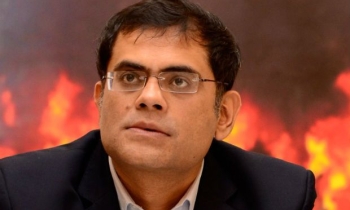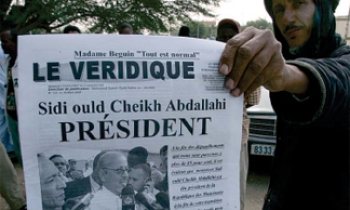New Delhi: An Editors Guild of India committee, constituted in the wake of Prime Minister Manmohan Singh's recent remarks about the lack of accountability in news reporting, has found that the race to increase circulation and a lack of transparency in acknowledging the news source are the primary causes of misreporting.
While noting various cases of irresponsible reporting that led to serious damage to individuals and society, the committee, in its report released on Tuesday, recommended the setting up of an in-house authority by news organisations, independent of the editorial and business departments, to look into charges of misreporting. It found that the charges that some financial papers were publishing reports designed to influence the stock market were widespread enough to suggest in-house corrective steps.
The papers that came in for criticism were the Economic Times and the Business Standard. A business TV channel was also named.
Manmohan's charge
The Editors Guild appointed the committee, headed by Ajit Bhattacharaya, after taking note of the strong criticism by Dr. Singh on September 22 last at the Chandigarh Press Club.
Mr Singh said: "In the race for capturing markets, journalists have been encouraged to cut corners, to take chances, to hit and run. I believe the time has come for journalists to take stock of how competition has impacted upon reality."
The immediate provocation for the remark were reports about a meeting in the Prime Minister's Office on stock market manipulations that led to fluctuations. The PMO denied that any such meeting took place.
The committee said the editorial departments should maintain specific codes for their staff, and stress should be laid on identifying sources and the authenticity of news reports and the responsibility of reporters and copy editors to check them.
Conflict of interests
Cases of misreporting should be promptly acknowledged, and corrections published. In cases of serious misreporting, readers should be assured that action had been taken against the offenders.
Care should be taken, especially by financial papers, to avoid a conflict of interests in reportage and comments, and the offenders must be punished, the report said.
The committee quoted passages from reports of business papers to support its stand that they had misreported about the PMO meeting. It, however, noted that Business Standard later apologised for the error.
It noted that one of the most blatant cases of the damage done by irresponsible reporting was the publishing of charges against Iftikhar Gilani, bureau chief of the Kashmir Times. "Several English and Hindi papers published false and planted stories in 2002 that he was a Pakistani spy. The Hindustan Times even reported that he is believed to have admitted in a city court that he was an agent of Pakistan's ISI."
No such admission was made. With leaks of national security issues assured of headlines, other reporters got into the act with fabricated details of huge assets, secret documents, links with Pakistan terrorist outfits and the like being found. A report in Frontline described Gilani as the Resident Editor of two Pakistan papers. Gilani spent six agonising months in the Tihar jail before the case against him was withdrawn. "Only the Hindustan Times published a partial retraction," the committee said.
To ensure credibility, sources of news items should be identifiable by name and/or designation or at least credible proximity to the informant. In case confidentiality was claimed, the reporter must assume responsibility for the credibility of the source, and it was the responsibility of the copy editor to make sure that the claim was genuine, it said.









